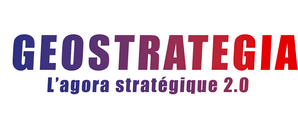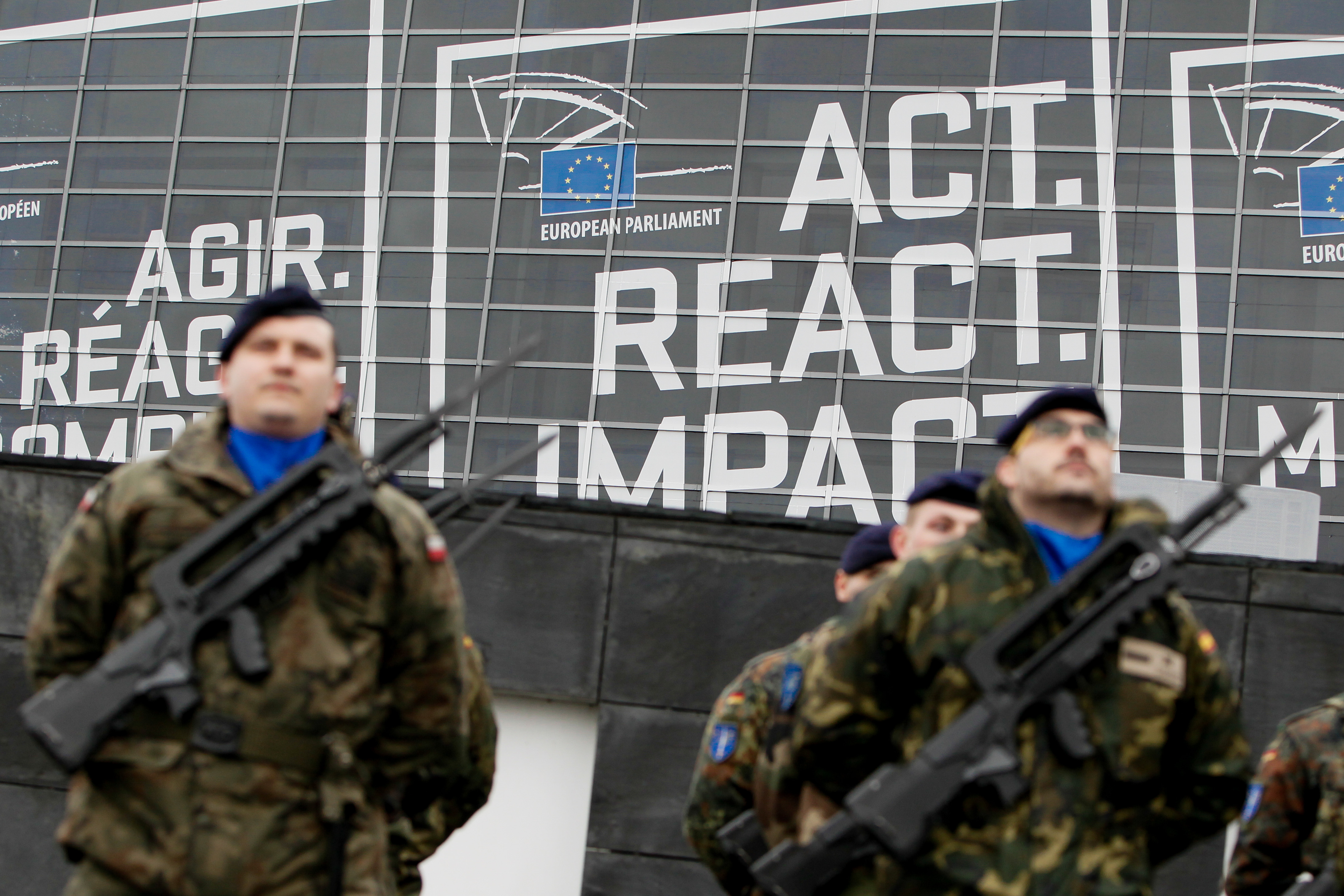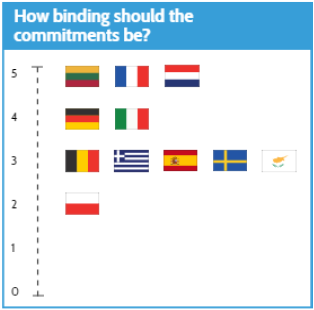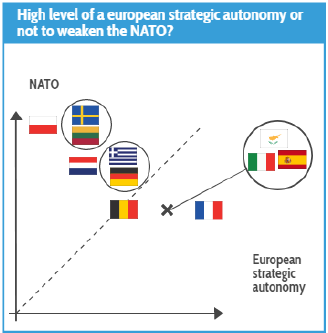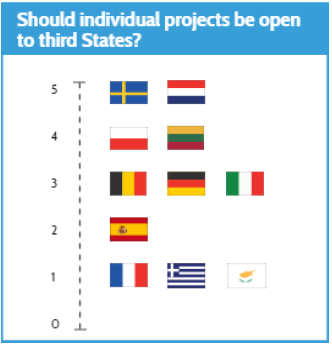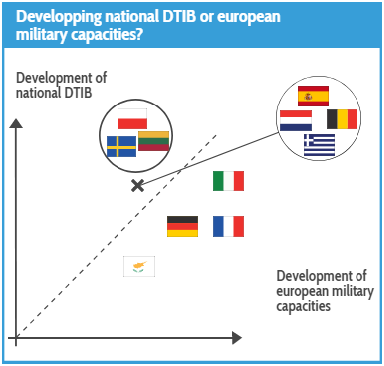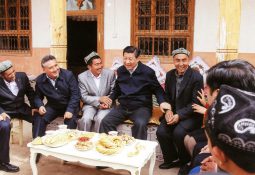Cet article est la synthèse du rapport de l’Armament Industry European Research Group « ARES » sur la Coopération Structurée Permanente (CSP). Le rapport propose les conclusions des experts du groupe ARES que pilote l’IRIS sur l’approche de la CSP adoptée par onze pays de l’UE. Le rapport souligne également les recommandations susceptibles de faciliter l’accomplissement d’objectifs de collaborations dans le domaine de la défense. Le rapport complet est disponible en suivant le lien proposé ci-dessous.
Les opinions exprimées dans cet article n’engagent pas le CSFRS.
Les références originales de cet article sont : MAULNY Jean-Pierre & DI BERNARDINI Livia, « Moving PeSCo forward : what are the next steps? », Armament Industry European Research Group (ARES) n°19, IRIS, mai 2019.
Vous pourrez consulter l’intégralité de l’étude en cliquant ici.
Ce texte, ainsi que d’autres publications, peuvent être consultés sur le site de l’IRIS.
ABSTRACT
The present paper draws the key conclusions from a year’s worth of ARES analysis on PeSCo. ARES experts have set out their vision of the approach to PeSCo adopted by their 11 respective countries: France, Germany, Italy, Spain, Sweden, Lithuania, Greece, Poland, Cyprus, Belgium and the Netherlands. The purpose of this study was to tease out lines of convergence and divergence by asking similar questions across European states. Comparing these national views has yielded five main recommendations that would both help achieve PeSCo’s objectives, and are liable to garner Member State consensus:
– Rule number 1: Rigorously enforce the binding nature of the PeSCo commitments.
– Rule number 2: Choose compatible crisis management and collective defence projects.
– Rule number 3: Limit the number of capability projects and distinguish two categories: category 1 for the largest and most expensive projects, category 2 for the less expensive ones. All projects in category 1 and 2 must be in line with the Capability Development Plan priorities and the necessity to fulfil EU military capacity shortfalls.
– Rule number 4: Reconcile the need to involve the DTIBs of all PeSCo members with the need to develop the most effective military capabilities.
– Rule number 5: Accept third States into a PeSCo project only if their contribution is substantial, and would make it impossible to carry out the projects without this contribution.
These proposals aim to address the following splits across European countries:
– Binding commitments versus flexible commitments
Some countries want the binding nature of the commitments to be strictly enforced, while others are willing to accept more flexibility.
– High level of ambition and willingness to develop the European strategic autonomy versus need to not weaken NATO
Some countries want projects to have a high level of ambition in order to develop Europe’s strategic autonomy, whilst others fear that this objective could weaken NATO and increase the decoupling of EU and US on European security.
It is worth noting that the states that champion a high level of ambition for PeSCo do not think that it would weaken NATO.
– Open or restricted rules to accept third States in PeSCo projects
Some countries would like to be able to open PeSCo projects widely to third States for interoperability reasons, while others would like to see more restrictive conditions to protect the specificity of the European capability approach.
– Development of national DTIBs versus development of European military capabilities
Some countries want PeSCo projects to benefit their national DTIBs as a matter of priority, others want them to meet the objective of filling capacity gaps.
Despite the potential contradictions involved, it should be added that all countries wish to develop their DTIBs through PeSCo to some extent, although they all also think that PeSCo’s objective should be to develop EU military capabilities.
Keywords: PeSCo, Common Security and Defence Policy, European Defence Fund, CARD, Framework Nation Concept, European Intervention Initiative, NATO, NORDEFCO, EDA, European commission

